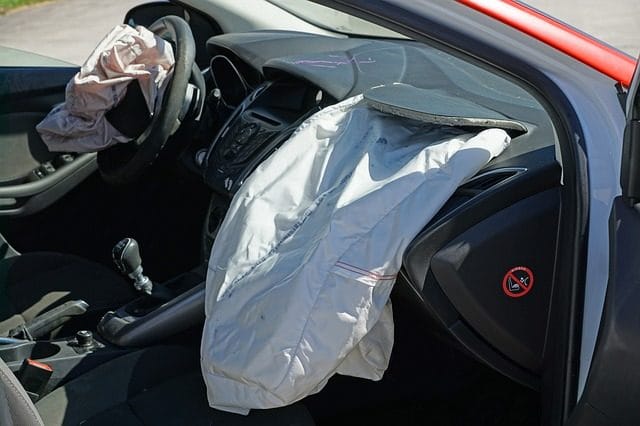It is fair to say 2020 will be remembered as a historic year, primarily due to the devastation wrought by the Coronavirus Pandemic. However, there were other significant stories, especially in the realm of civil justice. Those stories comprise our top-10 list for 2020, including landmark, multi-billion dollar jury verdicts, wide-ranging product recalls, and a failed attempt to overturn the results of the US presidential election by outgoing President Donald Trump. We present our top ten list in a two part countdown, this is the Part I, in Part II we feature the final top 5 civil justice stories of 2020.
Legal Examiner’s annual compilation of the 10 most important civil cases of 2020, was created by Virginia Beach, VA attorney-author Richard N. (Rick) Shapiro and his research assistants. This year-end compilation has become a tradition and has been provided by Rick and his team for Legal Examiner annually since 2012.
-
Louisiana Embraces Misguided “Tort Deform” Legislation that Will Ultimately Do More Harm than Good
- Why It’s Big: Another state succumbs to the misguided and misleading arguments levied by large corporations and insurance carriers that “runaway jury verdicts” are somehow causing insurance premiums to increase. The new law reduces the ability of a plaintiff to recover financial restitution in medical malpractice claims, restricting them to the amount actually paid by their health insurance carrier (rather than the amount of the injured person’s bills) in addition to any deductible or co-pay. Before this law was enacted, a plaintiff could pursue damages for the amount actually billed by a medical provider. Under the new law, once a jury verdict is rendered in Louisiana, the trial judge is obligated to award the plaintiff only 40 percent of the difference between the amount billed and the amount paid. In addition, the new law prohibits counsel from mentioning a defendant’s insurance company and policy, other than at the start and conclusion of a jury trial. Why? Because insurance company lobbyists argued that juries were more likely to award larger verdicts when they knew an insurance company would be paying the verdict and not the individual defendant.
- What We Learned: Large corporations and insurance companies carry significant sway in the Louisiana legislature, and the individual consumers are not are organized, or do not have any equally powerful organization representing them. Various iterations of “tort reform” legislation were proposed in Louisiana the past few years and the steady drumbeat to enact some form of “tort deform” was pushed and funded by corporate interests, not the interests of Louisiana residents. In many states that have enacted so-called tort reform, subsequent studies have shown no decrease in consumer insurance premiums, though “rising premiums” have been trumpeted by the big insurers and companies pushing for tort changes that help their special interests. Are the insurers protecting policyholders and third party consumers, or their own bottom line? You be the judge.
- Dig Deeper: https://www.theadvocate.com/baton_rouge/news/politics/legislature/article_1f80317e-c7a2-11ea-a78e-bb8190e7bdf9.html
-
Record-Setting Truck Accident Verdict in Texas Hanging in the Balance

Why It’s Big: This story sheds light on the “post-verdict” aspect of what happens after a jury returns a large verdict and departs the courthouse. Movies and TV programs featuring trial attorneys focus on the journey to the verdict, then fade to black. However, in many instances, the large verdict is only the beginning of the legal fight, especially when a defendant is a large, well-funded business or is backed by a major insurance company and its defense lawyers (e.g. a trucking or railroad company). On a personal note, I have first-hand experience with attaining a large jury verdict and then fighting relentlessly for over five more years to ensure my client received the financial restitution the jury verdict legally granted to them (learn more here).
- What We Learned: A Texas state jury awarded $101 million in damages to a plaintiff injured in an accident involving a large trucking company. Approximately $75 million of that jury verdict was punitive damages, which was quickly reduced by the trial judge due to the Texas state-enacted “cap “on punitive damages. The verdict award was first reduced to $31.6 million. However, the legal wrangling did not end there. The trucking company continued to challenge the verdict and a state appeals court effectively negated the verdict when it ordered a new trial, meaning the court vacated the entire jury decision, and granted a new trial entirely. Texas appeal court elected judges are notoriously “business-friendly,” and have repeatedly set aside major jury verdicts, essentially ripping up the jury’s determination, and requiring the aggrieved party to re-try the case based on legal errors addressed by the appeals court.
- Dig Deeper: https://www.ttnews.com/articles/how-texas-fender-bender-truck-accident-turned-32-million-nuclear-jury-verdict
-
Chevy Bolt EVs Recalled Due to Risk of Battery Fires
- Why It’s Big: Electric vehicles are supposed to be a key component to getting the United States to achieve carbon neutral status and, hopefully, mitigate the impact of climate change. However, that can only happen if electric vehicles are safe. Chevrolet is not alone in encountering challenges with vehicle batteries. For example, Hyundai also recalled 77,000 Kona electric cars due to the risk of battery fires.
- What We Learned: Close to 51,000 Chevy Bolt EVs (model years 2017-2019) were recalled due to the risk of battery fires. According to public reports, there is an issue with the Bolt’s electrical system, specifically the high-voltage lithium-ion batteries. There is a chance of fire in the battery pack, which can occur even when the vehicle is stopped, parked, and not plugged in to charge. For this reason, General Motors advised owners to park the vehicles outside and away from houses until repairs can be made.
- Dig Deeper: https://pittsburgh.legalexaminer.com/transportation/gm-recalls-chevy-bolt-evs-due-to-risk-of-battery-fires/
-
Government Agency Intent on Creating Landmark Set of Safety Regulations for Autonomous Vehicles
- Why It’s Big: The motivation driving the National Highway Traffic Safety Administration (NHTSA) to create a series of safety regulations for autonomous vehicles is primarily due to the significant potential risks with these types of automobiles. For example, a study published in Transportation Research Procedia discovered that rear-end accidents were more common with autonomous vehicles. This research cuts against the narrative that autonomous vehicles are somehow safer because they reduce “user error.” The actual data does not support that argument.
- What We Learned: The NHTSA has publicly stated that a regulatory framework will focus on creating rules that address industry best practices, instituting a requirement that automakers report problems associated with autonomous vehicles, and establish legally binding safety standards on automated driving systems. They say no one can stop technology, or the effects of innovation. This may be true with self-driving cars, but anyone who believes self-driving cars will end catastrophic car and truck wrecks is delusional. Last time we checked humans and computers were still not interchangeable.
- Dig Deeper: https://pittsburgh.legalexaminer.com/transportation/nhtsa-takes-the-first-step-in-creating-safety-regulations-for-autonomous-vehicles/
-
More Takata Airbags Recalled

Why It’s Big: NHTSA has described this as “the largest and most complex safety recall in U.S. history.” The Takata recall involves an estimated 63 million airbags impacting more than 42 million vehicles in the United States.
- What We Learned: To date, there have been 17 deaths and more than 200 injuries linked to the defective Takata airbags, which can shoot deadly metal shards towards drivers when airbags inflate. Worldwide, the NHTSA reported that there have been at least 25 deaths and 300 injuries connected to the faulty Takata airbags. We have learned that even a worthy major safety advancement can cause secondary injury or death, even while saving lives in other circumstances.
- Dig Deeper: https://www.consumerreports.org/car-recalls-defects/takata-airbag-recall-everything-you-need-to-know/
COMING SOON – The Top 10 Civil Justice Stories of 2020: Part Two (i.e. The Top 5)
Stay tuned for the top-5 civil justice stories of 2020. We will publish the final five in the coming days.








